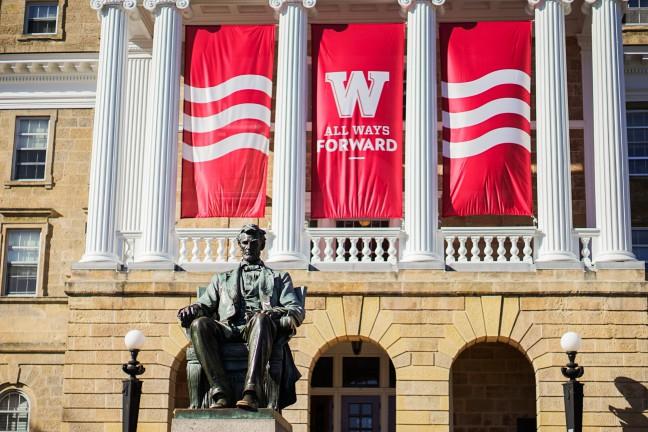Members of University of Wisconsin’s Department of History expressed their support and concern for the campus’ climate in a letter to the campus community Tuesday.
The letter identified several changes UW should make in response to recent hate and bias incidents on campus.
Faculty from various ethnic and indigenous programs within the history department, including African-American Studies, Chicano/Latino Studies, American Indian Studies and Asian American Studies, crafted a proposal to expand current ethnic and indigenous studies, Cindy I-Fen Cheng, a history and Asian American studies associate professor, said.
UW School of Education needs to live up to high standards, combat racism, bias on campus
The proposal calls for the hiring of more faculty of color in all four ethnic and indigenous studies programs, hiring a development officer and a staff member to encourage fundraising and advising support, course redevelopment of the Introduction to Comparative Ethnic Studies class and more teaching assistant support and training, Cheng said.
“Our proposals are grounded in two goals that have been articulated by students of color on campus: improving cultural competency and improving recruitment and retention of students and faculty of color,” Cheng said.
Cheng said a redevelopment of Introduction to Comparative Ethnic Studies would encourage more students to take their ethnic studies requirement within their first two years at UW.
In addition, adding teaching assistant support would demonstrate university support for the fields and encourage more students to pursue them, Cheng said.
Members of the department assured the UW community that they support the students demanding change and stressed that all students deserve a safe learning environment. Cheng said new, strong programs will improve campus climate and ignite insightful conversations about racism and racial disparities.
“We are deeply concerned that classrooms remain safe,” Cheng said. “Classrooms are not a holding cell. This educational institution is dedicated to teaching and transforming lives of students, and the [UW Police Department] has no room in the class.”
Meredith McGlone, UW spokesperson, said UW administration is working to raise awareness of the poor campus climate and to combat racism, racial disparities and hate crimes.
Starting this fall, UW will begin a pilot cultural competency training program for new students, but the administration has not yet determined its specifics, McGlone said.
Blank agrees to cultural competency training for UW administration
Ideally, McGlone said UW is looking for a program that has found success elsewhere. A group of UW students and staff have visited other colleges and universities to look at their campus cultural centers. Using them as examples, students and staff have submitted recommendations on how to improve the Student Multicultural Center.
“The chancellor has already provided accelerated funding for two new mental health counseling positions that made it possible for University Health Services to advertise and begin seeking candidates for those positions sooner than they otherwise would have been available to,” McGlone said.
The candidates they hire will have great experience working with diverse populations. This will encourage all students of different backgrounds to discuss their problems in a comfortable, accepting and relatable environment, she said.
Involving the entire UW campus community is essential to create an open discussion, and the chancellor has asked faculty for proposals that would improve campus climate, McGlone said. The Department of History’s proposals are just one of dozens the chancellor has already received.
UW reviews more than 100 proposals to improve campus racial climate
Creating this conversation and opening the floor to any recommendations and proposals is just one of the first steps to create a more comfortable campus climate and address issues of racism and hate crimes, she said.
“People need to judge us by our actions not just what we say, and I think the number of the steps I just outlined are more than just talk,” McGlone said.














